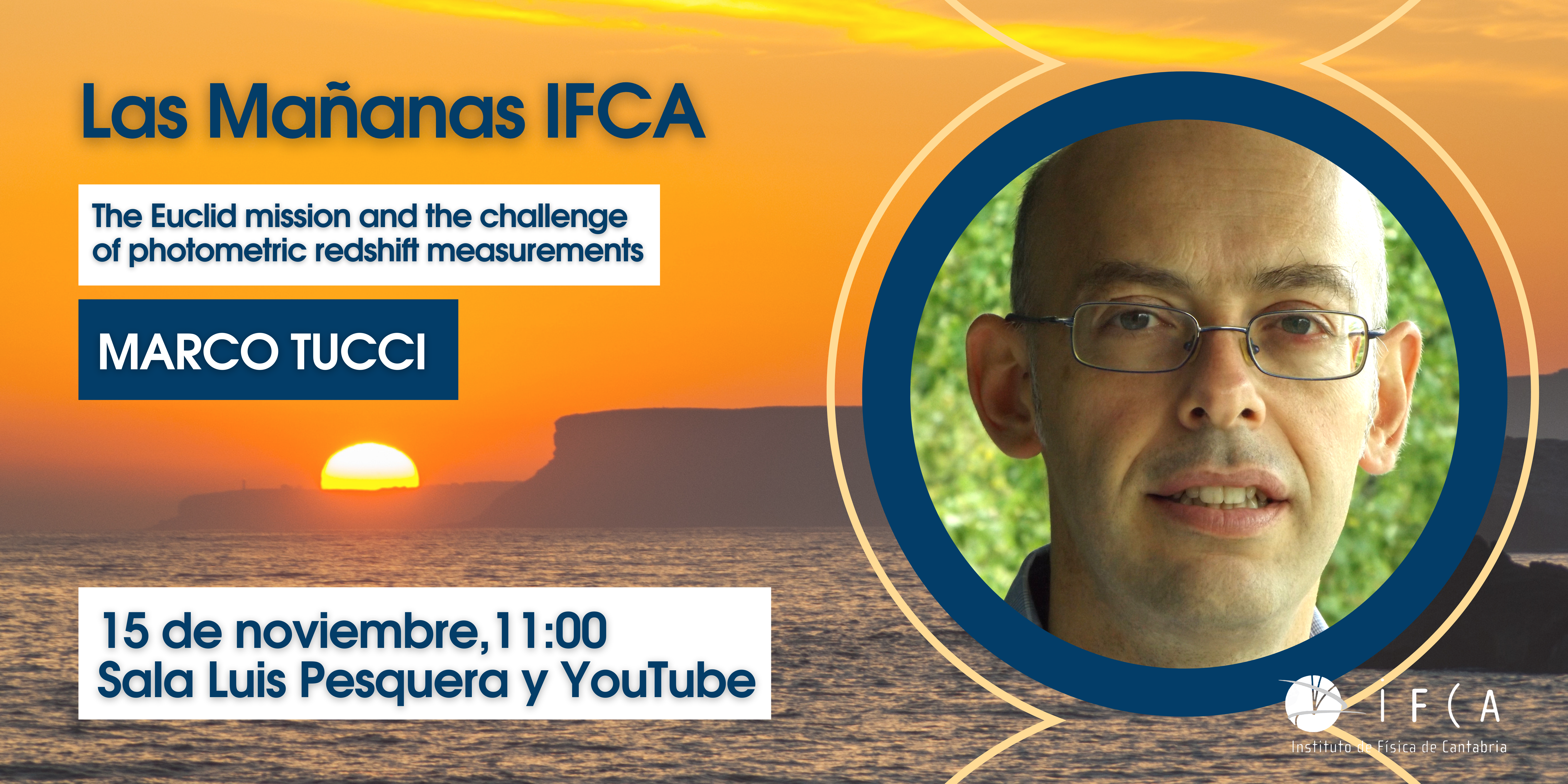Las mañanas IFCA con Marco Tucci: "The Euclid mission and the challenge of photometric redshift measurements"
Start date: 15/11/2022 11:00
End date: 15/11/2022 12:00

"The Euclid mission is a large photometric survey of the extragalactic sky (~15000 square degrees) at visible/near-infrared wavelengths. It will make a 3D-map of the Universe by observing billions of galaxies over a cosmic time covering the last 10 billion years. One of the main goals of the Euclid mission is to understand the nature of dark energy by determining its equation of state. A sensitive probe of dark energy is the weak gravitational lensing: it requires a high image quality on sub-arcsec scales for the galaxy shape measurements, and an accurate estimate of the photometric redshift of the lensed galaxies out to redshift < ~2. The requirements on the quality of photometric redshifts are tight and provide a serious challenge for the Euclid collaboration. In this presentation, after a general overview of the Euclid mission, I will discuss how the Euclid collaboration plans to measure billions of photometric redshifts. Two different approaches exist in literature: template fitting (which rely on spectral templates) and machine learning methods (which rely on training sets with available -spectroscopic- redshifts). I will discuss their pros and cons, and I will show how the combination of the two approaches is needed to achieve the required performances in terms of precision and accuracy".
Marco Tucci obtained a PhD in astronomy at the University of Milan in 2002. After that, he worked in different European universities (Santander, London, Tenerife, Paris) with postdoc positions. Since 2012 he has been at the University of Geneva. His main research interests are cosmology, the Cosmic Microwave Background (CMB) and the different foreground (with respect to the CMB) emissions, both Galactic and extragalactic, with particular attention to AGN and to the cosmic infrared background. Marco Tucci was involved in different CMB experiments, as, for example, the Planck mission. Currently, he is part of the Euclid collaboration, working in the development and validation of the pipeline for the photometric redshift measurements, and for the object classification based on machine learning techniques.
La charla tendrá lugar en la Sala de Claustros José Luis Pesquera del IFCA a las 11:00 y en streaming a través del canal de YouTube del IFCA.
